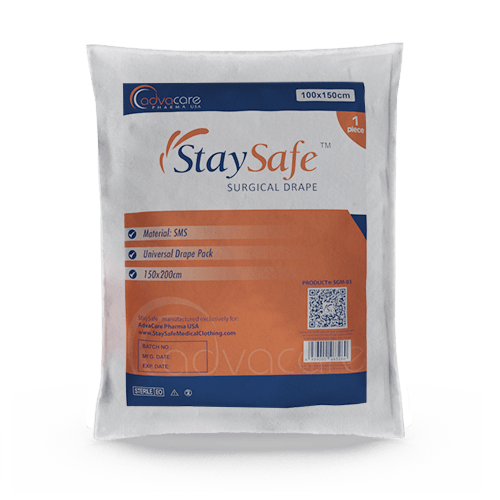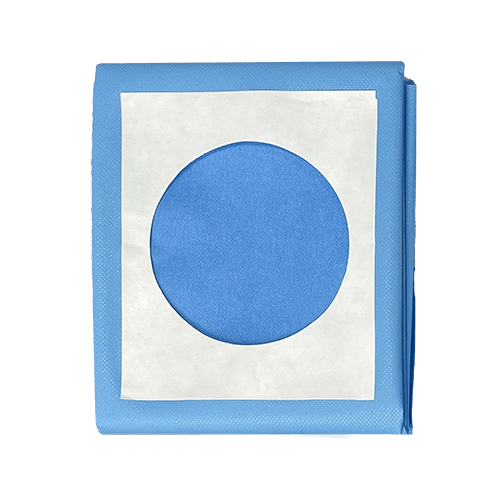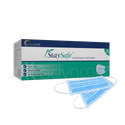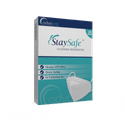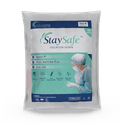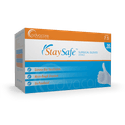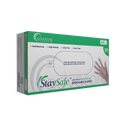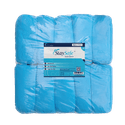Surgical Drape
Type
Material
Size
Packaging
What is a Surgical Drape?
A Surgical Drape is a sterile sheet that is placed over a patient to maintain a sterile surgical field during an operation. It has an opening to be positioned over the area where the surgery will be performed. Surgical drapes are available in many sizes and configurations for different procedures.
Drapes come in various specialized types, including the universal drape pack, back table cover, mayo stand cover, fenestrated drape, leggings, baby blanket, and ophthalmic drape. These drapes are made from different materials such as PP (polypropylene), PP + PE coated (polypropylene with polyethylene coating), and SMS (spunbond-meltblown-spunbond). Each type and material of the drape is designed to provide specific functionalities and protection during surgical procedures.
AdvaCare Pharma is a trusted medical supplies manufacturer and a global exporter of Surgical Drapes. Our medical disposables are produced in strategically-located facilities spread across China, India, and the USA. Our production factories are compliant with the stringent regulations necessary for CE/ISO certification, and we regularly inspect our facilities to ensure they meet these high standards.
Product Specifications
Type
Material
Universal Drape Pack
Universal drape pack is a practical solution for a wide range of medical procedures. It is designed for single use and offers a sterile environment for a variety of procedures.
The universal drape pack contains one adhesive top drape, one adhesive bottom drape, and two adhesive side drapes. These drapes can be used to provide a barrier against contamination and maintain a sterile field during a procedure. The adhesive backings can be easily attached to the patient or surrounding surfaces to ensure effective coverage.
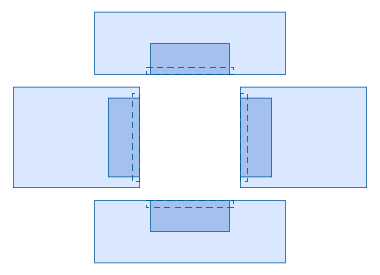
Back Table Cover
Back Table Cover is a puncture-resistant drape made of reinforced fabric that can be used for light to medium-weight trays and surgical instruments. It offers a reduced risk of linting to prevent wound contamination and features a flexible fabric that allows for quick and easy placement on the table.
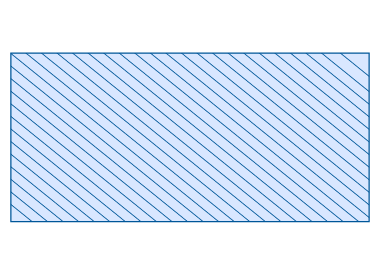
Mayo Stand Cover
Mayo Stand Cover is used to cover the mayo stand during a surgical procedure. It is constructed of non-sterile, flexible fabric which provides a reliable barrier against spills, splashes, and contamination. It has been specially designed to stay in place during the procedure so that it does not impede the surgical team's movements or access to instruments and supplies on the stand.
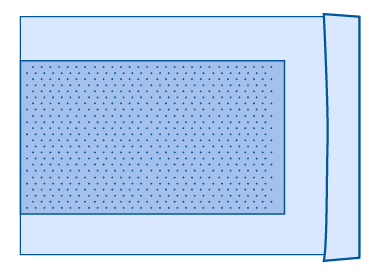
Fenestrated Drape
Fenestrated Drape is a sterile drape designed with a hole or "window" (fenestration) to expose the specific incision site during surgical procedures. The fenestration provides a clear and convenient access point for the surgeon while maintaining a sterile surgical field. This helps to minimize the risk of contamination and facilitates efficient surgical procedures.
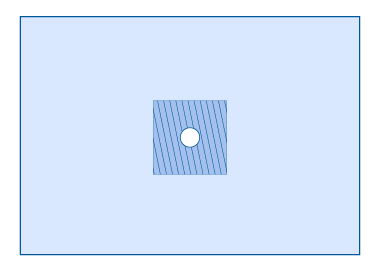
Leggings
Leggings are surgical drapes that are designed to provide coverage and protection for the lower extremities during a procedure that requires a sterile environment. The leggings have been manufactured from latex-free materials and are intended for single use, which offers ease of application while also helping to maintain infection control protocols.

Baby Blanket
Baby Blanket is a non-sterile white blanket that has been specially designed for newborns. The non-sterile material offers exceptional durability and softness, providing comfort for the baby during medical procedures or examinations. The blanket is made with high-quality materials to ensure a gentle touch on the baby's delicate skin.

Ophthalmic Drape
Ophthalmic Drape is a surgical drape that has been specifically designed for ophthalmic surgeries. Its unique design incorporates a fenestrated incise film and a pouch, offering significant advantages to the surgical staff during a medical procedure. The fenestrated incise film allows for precise and controlled incisions, and the pouch enhances convenience and efficiency by providing a dedicated space for storing and organizing surgical instruments and supplies.
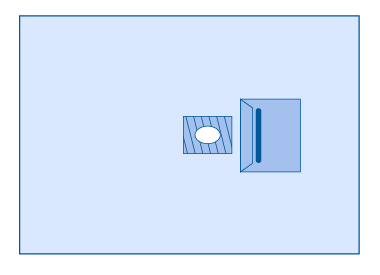
Cardiovascular Drape
Cardiovascular Drape is a sterile, surgical drape specially designed for use during heart surgery and other cardiovascular procedures, including hybrid surgery. This covering features an opening that allows access to the surgical site, along with pouches or velcro tube holders for the convenience of the surgical team. The flexible material is reinforced in critical areas, which helps maintain a sterile field for the patient and surgical team.
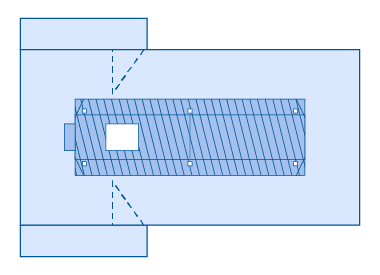
Arthroscopy Drape
Arthroscopy Drape is a sterile surgical drape intended for use during arthroscopic procedures, such as knee, shoulder, or leg surgery. This covering provides a sterile barrier around the joint, allowing the surgeon to access the area while maneuvering specialized instruments during the procedure. Certain designs feature tube and cord organizers and integrated fluid collection bags, for greater convenience to the surgical team.
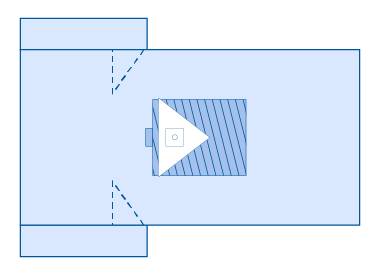
Orthopedic U Drape
Orthopedic U Drape is a sterile surgical drape used in orthopedic surgeries, particularly lower limb procedures. The covering is shaped like a "U" and intended to be placed around the operative area, which leaves the region exposed for the surgical team while covering the rest of the patient's body. The design features fluid collection pouches and a heavy-duty fabric that is resistant to tearing and abrasions.
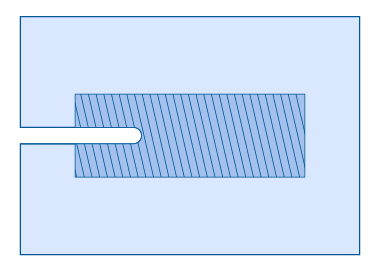
Polypropylene (PP)
Polypropylene (PP) is a lightweight and durable material that is known for its excellent barrier properties. It provides effective protection against fluids, preventing contamination during surgical procedures. PP drapes are tear-resistant and offer a reliable barrier against microbial transmission.
PP is a cost-effective material, which makes these surgical drapes a practical choice for many healthcare facilities.
Polypropylene + Polyethylene Coated (PP+PE Coated)
Polypropylene + Polyethylene Coated (PP+PE Coated) surgical drapes combine the strengths of both polypropylene and polyethylene. The outer coating of PE adds a higher level of fluid resistance, while the inner layer of PP provides strength and durability, ensuring the drape remains intact during use.
PP + PE coated surgical drapes are designed to be tear-resistant and to maintain their integrity during surgical procedures.
Spunbond-Meltblown-Spunbond (SMS)
Spunbond-Meltblown-Spunbond (SMS) is a material that consists of three layers: spunbond polypropylene, meltblown polypropylene, and spunbond polypropylene. This unique combination creates a fabric with superior barrier properties and fluid resistance. The meltblown layer acts as a filter, blocking the transmission of microorganisms and fluids.
SMS drapes are preferred for their tensile strength, preventing tearing or puncturing during surgery while maintaining a lightweight and comfortable feel.
Why choose us as your Surgical Drape manufacturer?
AdvaCare Pharma, a leading global supplier, specializes in manufacturing Surgical Drapes and a wide range of medical disposables for surgical use. A comprehensive STED dossier accompanies each of our products, assuring our partners and distributors of consistent adherence to the highest quality standards of our medical supplies.
Leveraging our extensive industry experience, we have established a distribution network spanning 65 markets worldwide. Our business model prioritizes forging strong partnerships with our distributors, and our dedicated team offers unparalleled support throughout the entire process, from supply chain coordination and registration assistance.
Uses
What are Surgical Drapes used for?
Surgical Drapes assist in creating a sterile surgical field during medical procedures. They are employed to create a barrier between the surgical site and the surrounding environment, preventing contamination and reducing the risk of infection.
These drapes are specifically designed to isolate and cover particular areas of the patient's body so that only the relevant area is exposed for the surgical procedure, while the rest remains protected and sterile.
How are Surgical Drapes used?
The utilization of Surgical Drapes involves careful placement over the patient's body, aligning the appropriate openings with the surgical site for accessibility of the medical team. Once positioned correctly, the drapes are secured in place to fix their position throughout the procedure. This precise placement and secure fixation help preserve sterility within the surgical field, allowing healthcare professionals to perform surgeries with a reduced risk of contamination.
Are there any storage recommendations for unused Surgical Drapes?
It is advisable to store unused Surgical Drapes in their original packaging to safeguard them from potential contamination and uphold their sterility. Adequate storage conditions include maintaining a clean and dry environment while protecting the drapes from direct sunlight and moisture. Following these storage guidelines guarantees that the drapes remain in their ideal condition for intended use.
How should used Surgical Drapes be discarded?
Used Surgical Drapes should be disposed of as medical waste in accordance with local regulations and guidelines. Careful handling is required during removal to minimize any potential contact with contaminants. The removed drapes should be placed in designated waste containers specifically designated for medical waste disposal.
Do Surgical Drapes have specific features for different surgical specialties?
Yes, Surgical Drapes are designed with specific features to cater to the unique requirements of various surgical specialties. For example, ophthalmic drapes are tailored to meet the demands of eye surgeries and include fenestrations for precise access, while cardiovascular drapes feature openings and pouches to accommodate the needs of heart surgeries. Arthroscopy drapes are configured to cover and protect joints during orthopedic procedures.
FAQs
What materials are Surgical Drapes made from?
Surgical drapes are available in PP, PP + PE coated, and SMS. PP drapes are lightweight, cost-effective, and provide a reliable barrier against fluids. PP + PE coated drapes combine the strength of polypropylene with the fluid resistance of polyethylene. SMS drapes offer excellent barrier properties, fluid resistance, and breathability due to their three-layer construction. Each material has specific advantages that are preferred for different surgical procedures.
Can Surgical Drapes be used for multiple procedures on the same patient?
Surgical drapes are typically designed for single use and are intended to be disposed of after a single procedure in order to minimize the risk of cross-contamination.
Can Surgical Drapes be used in other healthcare settings besides the operating room?
They are also utilized in settings such as minor procedure rooms, outpatient clinics, emergency departments, and other environments in order to reduce the risk of infection during medical procedures.
Are there options to tailor the specifications of your Surgical Drapes to suit my requirements?
We provide customization choices for numerous medical devices to address particular surgical and clinical needs. Our agile manufacturing processes enable us to expand our production capability, ensuring a broader range of specifications to meet diverse market demands.
Is technical support available for your Surgical Drapes?
As most Class I and Class II medical devices require little training, often documentation and auxiliary technical materials are sufficient to provide any additional information needed by healthcare providers. However, we remain available to our distributors to provide any and all support needed to assist with the proper use of our medical device products.
References
Surgical gowns and drapes into the 21st century - PubMed
This article discusses the development of a mandatory European standard on the basic requirements and test methods for surgical personnel, and operating room facilities, including gowns and drapes. It emphasizes the need for quality assurance for reprocessing of surgical gowns and drapes, and the use of validated processes to maintain material properties.
Summary of a systematic review on drapes and gowns
This summary highlights the use of sterile surgical drapes during surgery to prevent contact with unprepared surfaces and maintain the sterility of environmental surfaces. It provides an overview of the importance of drapes and gowns in preventing the spread of infection during surgical procedures.

You might be interested in...
Why AdvaCare Pharma?
As an industry leader, we are aware of our responsibility to provide affordable and sustainable solutions to improve healthcare worldwide.
